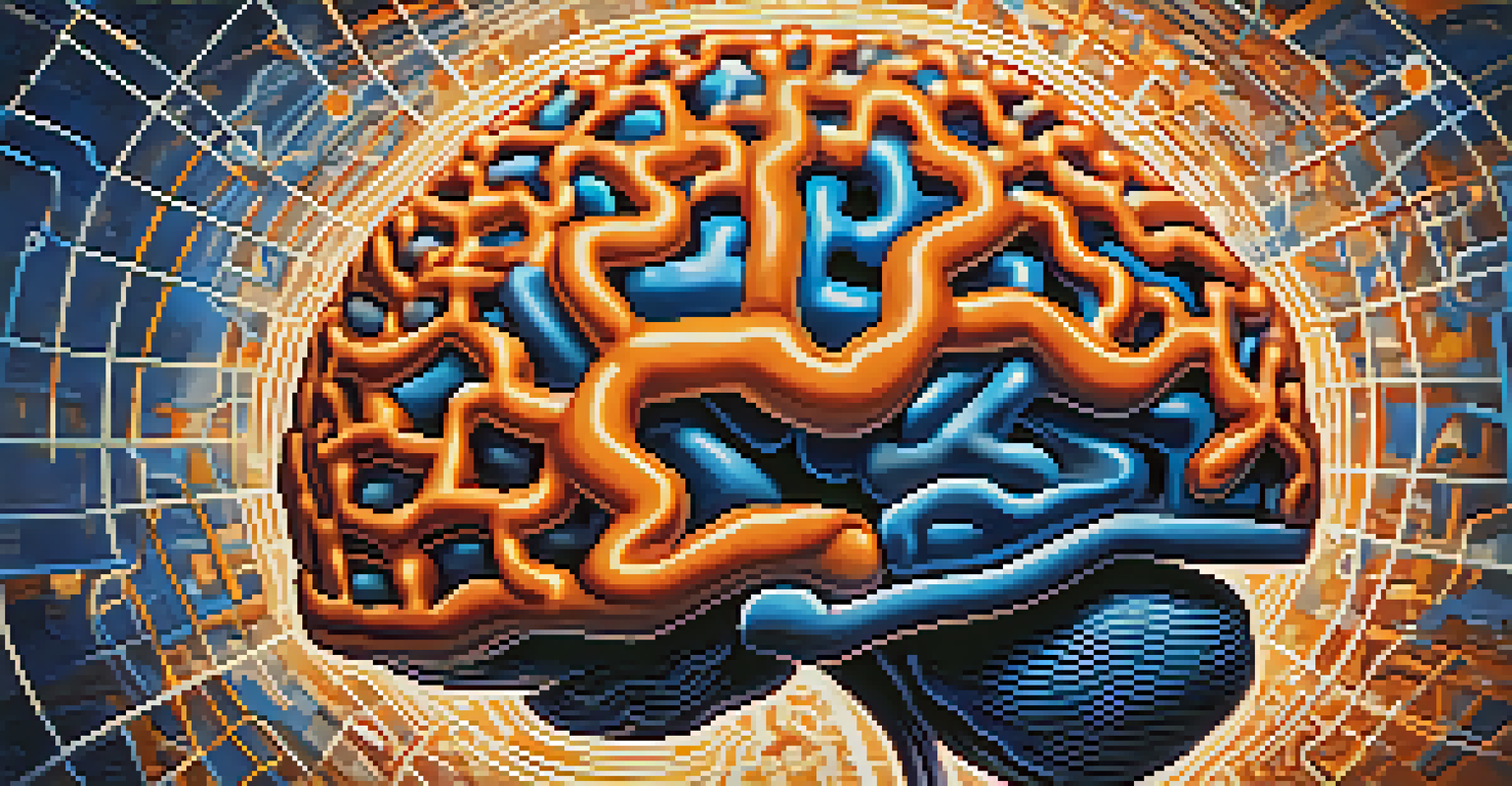Exploring the Science of Entheogens and Work Performance

Understanding Entheogens: Nature's Psychedelic Companions
Entheogens are substances that have been used for centuries in spiritual and healing practices. Derived from the Greek words 'entheos' meaning 'the divine within' and 'genesis' meaning 'to create,' these compounds can alter consciousness and enhance perception. Common examples include psilocybin from mushrooms, mescaline from cacti, and ayahuasca, a brew from the Amazon.
Psychedelics can help us see the world anew, to look at problems in a new light and to approach challenges with creativity and insight.
In modern times, entheogens are gaining attention for their potential therapeutic benefits, particularly in mental health. Research suggests that these substances can foster creativity, promote emotional healing, and even enhance cognitive functions. As the stigma surrounding psychedelics diminishes, more professionals are exploring their potential benefits in the workplace.
However, it’s essential to approach this topic with caution, as entheogens can also lead to challenging experiences. Understanding their effects and the contexts in which they are consumed is crucial for anyone considering their use to improve work performance.
The Science Behind Entheogens and Cognitive Function
Studies have shown that entheogens can influence brain chemistry by promoting neuroplasticity, which is the brain's ability to adapt and reorganize itself. This neuroplasticity can lead to enhanced problem-solving abilities and creativity, both vital components of effective work performance. For example, researchers have found that psychedelics can increase synaptic connections in the brain, leading to more innovative thinking.

Additionally, the impact of entheogens on serotonin receptors has been linked to mood enhancement and reduced anxiety. A more relaxed and positive mindset can significantly improve focus and productivity in the workplace. By fostering a sense of connection and reducing mental barriers, these substances may help individuals tap into their full potential.
Entheogens Enhance Creativity
These substances may unlock new perspectives, fostering innovative thinking and solutions in the workplace.
However, it's important to acknowledge that not everyone will experience these benefits. Individual responses to entheogens can vary widely based on factors like dosage, environment, and personal mental health history.
Enhancing Creativity with Entheogens in Work Environments
Creativity is often the lifeblood of innovation in many industries, and entheogens may be a key to unlocking this potential. Many artists and innovators have credited their breakthroughs to experiences with psychedelics, claiming that these substances allowed them to see problems from new angles. This shift in perspective can lead to out-of-the-box solutions that drive progress.
The psychedelic experience can bring about a sense of connection and understanding that is deeply transformative.
Workplaces that prioritize creative thinking may benefit from understanding how entheogens can foster this skill. For instance, team-building retreats or brainstorming sessions in a safe, controlled environment could potentially harness these substances to enhance creative collaboration. However, these practices need to be approached with care and proper guidance.
Moreover, it’s essential to establish a solid framework for integrating such practices into organizational culture. Clear guidelines, professional support, and a focus on safety can make a significant difference in how these experiences are perceived and utilized.
Mental Health Benefits: Reducing Anxiety and Stress
The connection between mental health and work performance is undeniable. High levels of stress and anxiety can hinder productivity and lead to burnout. Entheogens have shown promise in reducing these feelings, allowing individuals to approach their work with a clearer mind and renewed energy.
For example, clinical trials have indicated that substances like psilocybin can significantly reduce symptoms of depression and anxiety, leading to improved overall well-being. When individuals feel mentally supported, they are more likely to contribute positively to their teams and organizations.
Therapeutic Benefits for Mental Health
Entheogens have shown promise in reducing anxiety and stress, which can significantly improve work performance and overall well-being.
However, while entheogens may offer benefits, they are not a one-size-fits-all solution. Proper mental health support and professional guidance are crucial to ensure that individuals are safe and well-prepared for such experiences.
Challenges and Risks of Using Entheogens at Work
While the potential benefits of entheogens are compelling, there are significant challenges and risks that organizations must consider. One major concern is the legal status of many entheogens, which can vary by region and create complications for workplace policies. Employers must navigate these legal landscapes carefully to avoid potential liabilities.
Additionally, the unpredictable nature of entheogen experiences can lead to uncomfortable or even traumatic situations. Not everyone reacts positively to these substances, and negative experiences can hinder performance rather than enhance it. Companies need to prioritize employee safety and well-being when considering any integration of entheogens into their culture.
Finally, establishing a clear understanding of employee consent and readiness is paramount. Open dialogue about the use of entheogens, combined with a supportive environment, can help mitigate some of these risks.
Real-World Examples: Companies Exploring Entheogen Benefits
Several progressive companies have begun exploring the benefits of entheogens within their teams. For instance, some tech startups have hosted retreats where employees can safely explore psychedelics under professional supervision. These experiences aim to enhance creativity, strengthen team bonds, and reduce workplace stress.
Another example can be found in the wellness industry, where some organizations are integrating entheogen-focused therapies into their employee assistance programs. These programs offer employees access to mental health support and education around psychedelics, providing a holistic approach to well-being.
Navigating Risks and Legal Issues
Organizations must carefully consider the legal status and potential challenges associated with integrating entheogens into workplace practices.
These real-world examples highlight a growing trend of companies willing to embrace alternative methods to promote mental wellness and productivity. They serve as case studies for how other organizations might approach the integration of entheogens.
The Future of Entheogens in Work Performance Enhancement
As research on entheogens continues to evolve, the future of their use in work performance enhancement looks promising. With more studies highlighting their positive effects on creativity, mental health, and overall productivity, organizations may begin to shift their perception of these substances. This shift could lead to a broader acceptance and integration of entheogens into workplace practices.
Moreover, as the legal landscape surrounding psychedelics changes, companies will have more opportunities to explore their potential benefits. This could result in innovative programs aimed at enhancing employee well-being and performance, ultimately fostering a healthier work environment.

However, the key will be balancing exploration with responsibility. Organizations must prioritize ethical considerations and employee safety as they navigate this new frontier of work performance enhancement.